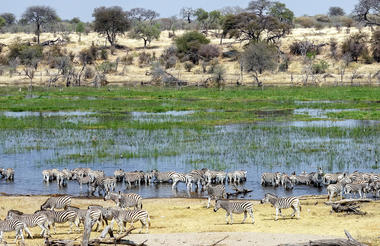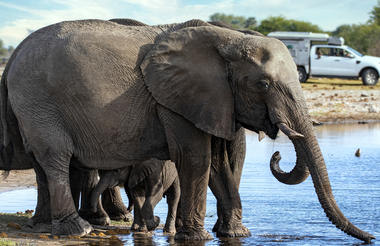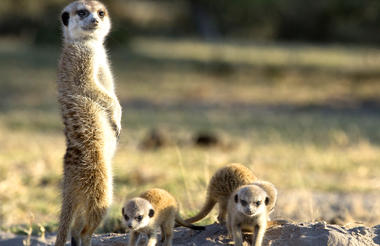The Makgadikgadi National Park is where the Okavango Delta finally fades into desert. The Boteti River draws a line in the sand, separating the dry Makgadikgadi from the thirst lands of the Kalahari beyond. This is the ultimate last chance for hundreds of zebras and wildebeest that crowd the water’s edge to quench a desert-drawn thirst.
The Boteti is the last finger of the Okavango Delta, reaching down to the Makgadikgadi Salt Pans. Years have passed without the river being fed a drop at all; becoming a long sandy riverbed with shrinking waterholes, where zebras jostle for space under high-flying sheets of dust. At other times, the Boteti swells up fat and full, spilling into saltpans hundreds of kilometers from its source before evaporating into thin air.
This is the place to watch plains game crashing through sharp acacia trees, gathering under lofty palms and lurking in the shade of the riverine woodland, keeping close to the water. When the Boteti River is full, big elephant bulls can often be found playing in the water and browsing in the reeds while the sun sets on the day.
Although the park’s eastern edges touch the Makgadikgadi saltpans, its unlikely you’ll see them during your stay. Where the saltpans are about landscapes, the Boteti is about a more traditional safari experience. Explore the banks by game drive, drift along the river by boat (when water levels allow), or wait for the wildlife to pass by from the sanctuary of a hide.
Once the rains arrive (October – November) the zebras and wildebeest abandon the Boteti, migrating to the saltpans and only returning in the winter (April – May). During the green season the Boteti’s banks become a quiet green landscape of technicolour sunsets and an explosion of birdlife.







